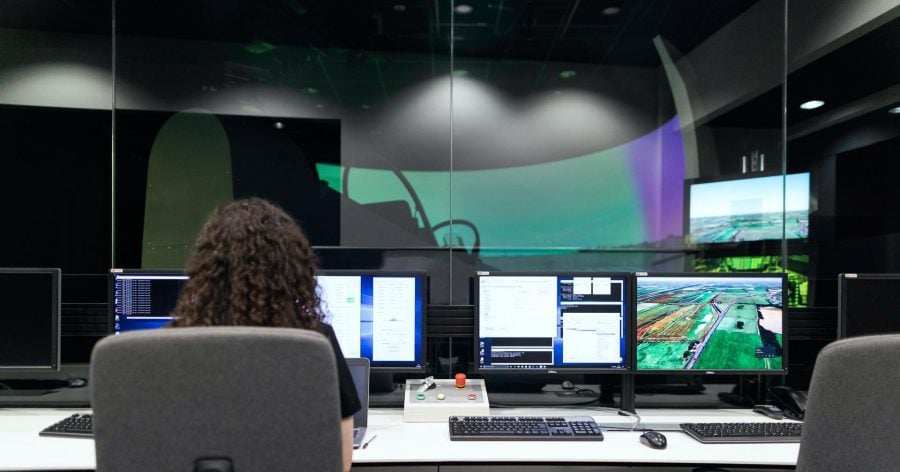On Feb 21, 2024, Change Healthcare—a main medical clearinghouse for United Healthcare Group—was hit by a ransomware attack that crippled electronic payments. Change Healthcare handled 15 billion dollars of claims annually. How did this attack happen? By exploiting a lack of industry-standard multifactor authentication on a legacy server, hackers took down a large chunk of United’s Healthcare system while compromising the health data of nearly 190 million Americans.
As a result, hospitals couldn’t process prescriptions or bills, forcing patients to pay out-of-pocket. This incident led to $100 million of daily losses for healthcare providers, supply-chain uncertainty, and an eventual federal investigation. The fallout exposed the shortage of cybersecurity professionals who can protect infrastructure while navigating the regulatory risks of healthcare data systems.
Old legacy systems were almost the downfall of online ticket vendor TickPick as well. In 2024, the company lost millions when its outdated fraud system blocked legitimate big-ticket purchases. For instance, someone buying high-value $20,000 Super Bowl tickets might be flagged as suspicious. As a fix, TickPick adopted Riskified’s “Adaptive Checkout.” This AI-powered fraud-detection system uses risk assessments to approve, decline, or flag transactions for verification. It helped TickPick recover three million dollars in revenue in only 90 days. The main point: online businesses require professionals who can strategically apply AI while balancing security, customer experience, and profit.
It’s not only healthcare and old legacy systems in need of employees with flexible, data-driven skills.
Fast forward to September 2024 and California’s Bridge Fire. This fire burned through 55,000 acres, threatening communities in San Bernardino County. Emergency crews used advanced GIS mapping tools to track fire spread, analyze terrain, and coordinate evacuations, saving both lives and property. As climate-driven disasters increase, the ability to interpret spatial data and translate it into actionable plans is more crucial than ever.
What Are Hybrid Technical Skills?
These three incidents, though seemingly disparate, highlight the increasing need for hybrid technical skills.
If you haven’t heard the phrase “hybrid technical skills,” the term originates from discussions in workforce development, education, and labor economics—especially since the early 2000s. The concept, a response to changing demands in the modern labor market, describes the fusion of technical (hard) skills and non-technical (soft) skills.
In short, hybrid technical skills comprise a blend of domain expertise (such as business, cybersecurity, and environmental science) with communication, digital literacy, and applied knowledge that cuts across industries.
People with these in-demand skills can understand the technology while speaking the language of strategy. For instance, if you’re a problem-solver with hybrid technical skills, you might not be coding AI models from scratch. But you know how to select the right tools, interpret data outputs, and apply them to diverse problems. You’re not solely a coder or an analyst—you’re an integrator, a translator. You know how to apply the right technology to solve the right problem.
For example, in the workplace, an employee with hybrid technical skills might be a
- business analyst who can leverage AI models to optimize workflows
- forester who can analyze GIS data to support conservation efforts
- security professional who understands both network vulnerabilities and organizational risk
- healthcare cybersecurity expert with compliance and regulatory knowledge
Workplace Demand for Those with Hybrid Technical Skills
To put it another way, hybrid technical professionals are the translators between advanced technologies and real-world impact. And you can tap into the demand for them, which is definitely soaring.

- According to Burning Glass Institute, roles requiring a blend of business and digital skills are growing twice as fast as those requiring only one or the other.
- When it comes to cybersecurity, current 2025 job openings exceed 500,000. Employers prioritize candidates who understand both security protocols and organizational risk.
- And AI adoption in business has reached a tipping point. Currently, 55% of organizations are investing in AI-driven automation. However, these same organizations lament a lack of critically-thinking talent to implement it effectively.
- The world could lose 39 trillion dollars from vanishing wetlands alone. This example highlights how climate resilience and natural resource management are increasingly in need of GIS analysts and specialists.
MTU’s Newest Programs Help Fill the Hybrid Technical Skills Gap
Whether you want to defend digital infrastructure, leverage AI to drive smarter business decisions, or use GIS to protect natural resources, Michigan Technological University’s latest online graduate programs offer targeted, flexible pathways to equip you with hybrid technical skills for making that transition.
Why choose these programs?
- Take 100% online programs designed for you, the working professional.
- Learn from expert faculty with real-world experience.
- Earn stackable credentials. Or choose to move on to an advanced degree.
- You can apply for FREE and skip the GRE and GMAT.
Online MS in Cybersecurity
Cybercriminals are growing increasingly savvy and destructive. And cybercrime damages are expected to hit $10.5 trillion annually by the end of 2025. Therefore, adaptable cybersecurity professionals are in high demand across industries. Along with ransomware, cybersecurity professionals must be ready to battle Advanced Persistent Threats (APTs), Phishing and Social Engineering, Zero-day attacks, high-profile data breaches, DDoS attacks, and many other types of cyber crime. The changing nature of cyber threats also requires organizations to continually improve their defenses and adapt to new attack vectors.
Cybersecurity professionals work in defense, finance, government, healthcare, and manufacturing. With MTU’s online master’s degree in cybersecurity, you can prepare you for several roles, such as security analyst, risk manager, cyberoperations specialist, cybersecurity architect, cybersecurity manager, cybercrime analyst, and more. And in this program, you can also earn a certificate in the Foundations of Cybersecurity along the way.
Need more details? Want to take a closer look at this program? Attend our virtual information session on Thursday, Sept. 18, 2025.
Online Graduate Certificate in Artificial Intelligence in Business and Information Systems
Artificial Intelligence is obviously not just for tech companies anymore. In business and information systems, AI can accelerate predictive analytics, identify patterns, trends, and correlations. All of these tasks can help businesses make detailed forecasts. Artificial Intelligence, then, adds “smart” capabilities. That is, instead of just collecting information, an AI-enhanced system can learn from data, spot patterns, and even make decisions or recommendations.
With Global Campus’s online certificate in AI in Business and Information Systems, you can bring advanced AI skills to decision-making, project management, and operations. This 3-course credential is ideal if you want to lead AI transformation projects, bridge business and technical teams, and advance into product and leadership roles. It also gives you the expertise to transition into careers, such as AI strategist, business intelligence analyst, or digital transformation lead. You can also apply these credits towards an Online Master of Business Administration.
Online Graduate Certificates in Advanced GIS and Remote Sensing
With climate change and land management in the spotlight, advanced GIS skills are becoming critical. To meet this demand, Global Campus previously rolled out the Online Foundations in Geographic Information Science Certificate in 2024. Joining it in 2025 are two new certificates for natural-resource professionals: Advanced GIS and Remote Sensing.
In the Advanced GIS certificate, you will master sophisticated GIS concepts and methodologies, which are central to analyzing large and complex datasets, automating routine geospatial workflows, and effectively managing geodatabases. You’ll also get exposure to designing, executing, and communicating comprehensive geospatial projects. Remote sensing, the process of collecting information from the Earth’s surface and atmosphere without making physical contact is the focus of the second certificate. As a GIS professional, you’ll need to combine remotely sensed data with ground-based research to provide timely, accurate, and spatially extensive information that allows them to plan, predict, model, and make decisions.
All these GIS certificates empower you with hybrid technical skills for addressing real-world challenges, delivering innovative solutions, and excelling in professional and industry-level geospatial roles. They give you career choices: preparing you for roles in environmental consulting, forestry and land use planning, and emergency management and disaster response.
Upskill for the Careers of Tomorrow—Starting Today
From ransomware attacks to wildfire mapping to AI-driven business strategy, the workforce is facing a major skills gap. And as a professional with hybrid technical skills, you could be there to fill it. Several organizations are seeking flexible employees who blend tech fluency, critical thinking, communication skills, and domain-specific expertise. They want employees who can connect digital tools to business goals, apply AI in strategic decision-making, interpret cyber threats through an operational lens, or leverage GIS systems for environmental analysis.
Whether you’re looking to switch careers or elevate your current role, Michigan Tech’s Global Campus gives you the tools to lead in a world defined by data, systems, and strategic decision-making. These previously mentioned programs, though, are more than credentials—they’re launchpads for meaningful, future-ready work. And don’t forget our other flagship program that prioritizes hybrid technical skills: the Online MS in Applied Statistics.
We’d love to connect with you and have a conversation about one of these programs. Global Campus has a committed, knowledgeable admissions manager, Amanda Irwin. Amanda is available to help you evaluate programs and to find the right fit for you. She’s also adept at answering tough questions and helping people navigate the application process.
And don’t forget: applying online is free. And you don’t require GRE or GMAT scores, either.
